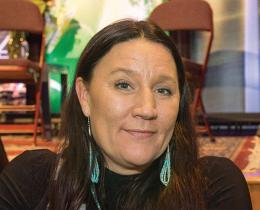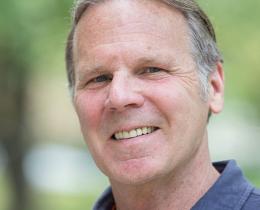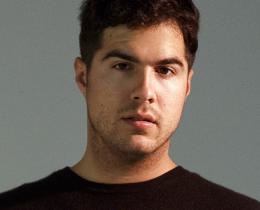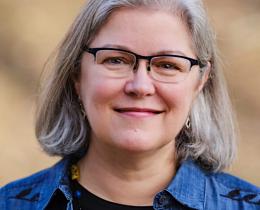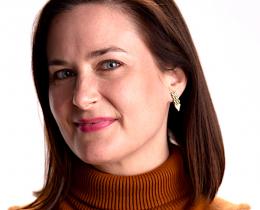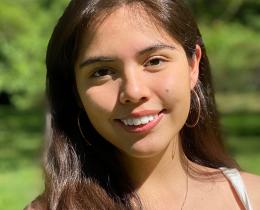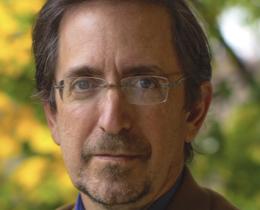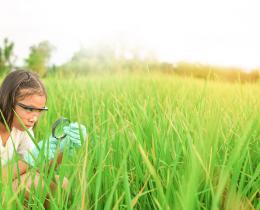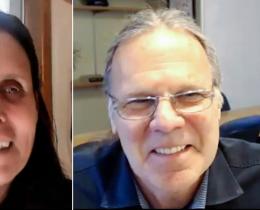Omega Center for Sustainable Living: What is radical reciprocity?
Matt: When most people think about reciprocity, they think about how a relationship can be of mutual benefit to the people involved. This concept is rooted in a transactional mindset that sees humans as consumers; the nonhuman world as natural resources; and our relationships as social capital. This perspective doesn’t consider the larger whole.
Radical reciprocity recognizes that we are individuated and we are an interdependent expression of the whole. Instead of being transactional, relationships become the means through which we remember our connections. We are invited to move beyond one-to-one relationships to consider how relationships might create conditions for all life to thrive.
Omega Center for Sustainable Living: How do you practice radical reciprocity?
TwoTrees: In radical reciprocity, relationship is the most important. It is more important than profit, benefit, and even understanding and happiness. This practice gives me a place to stand—as a maka wicasa, an Earth person—in relationship with all of life. It reorients me to the Earth as mother/teacher/nourishment/medicine and to humans as one part of that large web of relationship.
It is from this foundation of relationship that I can participate with the land, seasons, weather, gardens, wild spaces, birds and ground animals, insects, and humans in a dynamic balance of giving and receiving. From that starting point, I can move into taking action in ways that align with and grow from an understanding that we’re part of a whole. It allows me to engage with issues not as separate problems but as a way of continuing to enliven my relationship with nature as collaborator, teacher, and partner.
Omega Center for Sustainable Living: How has radical reciprocity shown up in your relationship with each other?
TwoTrees: In our work together, Matt and I have been exploring what we call capital “T” Trust. This is a Trust that is rooted in our sense of ourselves as part of something larger and prioritizes well-being—our own, each other’s, and that of the larger world. We make decisions based on well-being—behavior that can sometimes be perceived by others as unreliable and inconsistent (according to social norms).
Our relationship offers us the support and freedom to continually change and evolve. Because we have Trust, we can have conversations about the nature of reciprocity in our relationship. In the early days of working together, we carefully and intentionally tended to the quality of our relationship, making sure that it was generating energy, building our capacity to engage in tension, aligning our strengths to our integrity, being committed to equitable (but not necessarily equal) exchange.
While this is still important, as our Trust for each other grew, our sense of reciprocity also shifted. Rather than being primarily concerned with the dynamic balance of our relationship/connection, we shifted our attention to exploring how our relationship might benefit and serve the larger world of which we are a part.
Omega Center for Sustainable Living: What can we learn from the natural world about radical reciprocity and working across difference?
Matt: Diversity is one of the most striking and fundamental patterns of healthy, living systems. It is the raw material system's need to adapt or evolve in response to changing conditions.
This is also true in social systems. The same forms of difference that enhance resiliency, creativity, and ability to solve problems can also lead to significant social challenges and conflict. This is the paradox of diversity.
While our differences have provided the raw material for evolution and social innovation, humans have also often used difference (e.g., skin color, spiritual belief systems, sex, learning styles, political affiliation, etc.) as a basis for oppression and violence. As our colleague, Roberto Chene explains, “It is not difference that is our challenge. It is dominance.”
In the absence of authentic and radically reciprocal relationships across difference, we miss out on the potential creativity, adaptability, and resilience that our differences can offer.
TwoTrees: All beings on the planet have unique gifts, purposes, talents, skills, and knowledge. We work best when we utilize those in connection with, and with an awareness of, our interdependence. That requires us to learn to work together in the tension of our differences. In order for our work together to nourish the whole, it is essential that we tap into not only our own uniqueness but also the creative impulse that helps us to design systems and structures, and create conditions that serve the whole.
Omega Center for Sustainable Living: You teach reciprocity at the Leadership for Sustainability master’s degree program at the University of Vermont. Can you tell us a little bit about the program?
Matt: This program is a result of the collective vision and wisdom of an incredible network of inspiring and innovative leaders from around the world who are practicing radical reciprocity and catalyzing change in relational ways. The program is continually evolving, and at its core are three central tenets: 1) leadership inspired by the wisdom of nature, 2) challenging structures of domination and oppression, and 3) leadership practices that participate in creating conditions for all life to thrive.
It is a low-residency program intended for working professionals from a wide array of fields who want to explore different ways to catalyze change. You don’t have to leave home and can immediately apply what you’re learning to your professional and personal life.
TwoTrees: The program also offers an amazing professional affiliate network that includes leaders, change-makers, artists, faculty, and staff from a wide variety of fields and sectors that participate in the program by offering learning modules, serving as coaches or committee members, and more.

